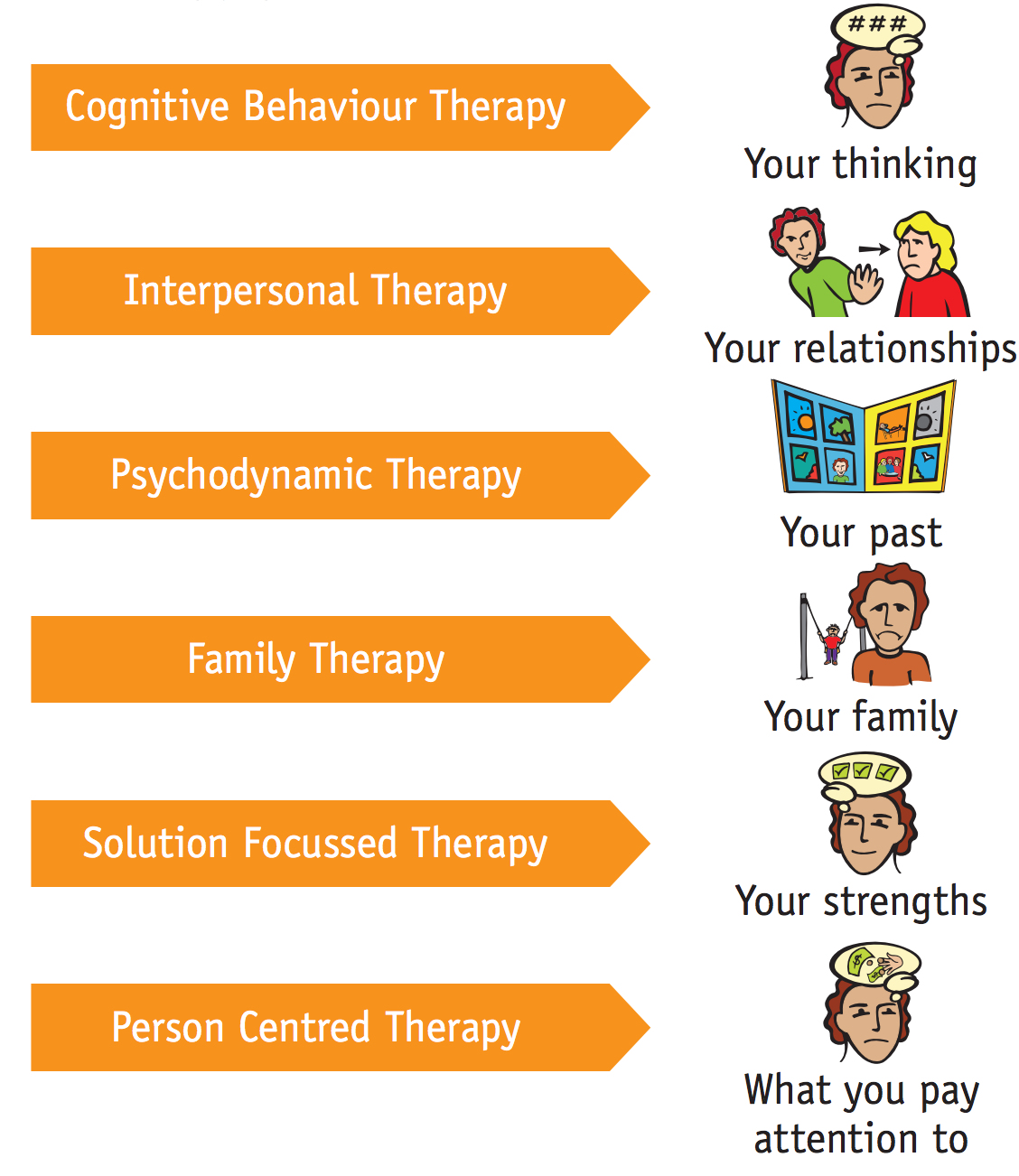Effective Techniques Used in adhd counselling to Improve Focus and Daily Life
Wiki Article
Discovering the Benefits of Virtual Therapy in Modern Mental Healthcare
The rise of virtual therapy marks a substantial shift in mental healthcare. It supplies boosted access, enabling people from diverse backgrounds to seek aid without geographical restrictions. Versatility in organizing accommodates varying way of lives, while the comfort of home can foster openness. The ramifications of these changes prolong beyond mere convenience. The evolving landscape of therapy raises essential questions about its long-lasting effects on patient involvement and therapy results.Improved Ease of access for All
Although standard therapy often offers obstacles such as geographical place and scheduling problems, virtual therapy considerably improves access for people looking for psychological wellness assistance. By eliminating the requirement for physical travel, virtual therapy allows customers from remote locations or those with mobility obstacles to get in touch with qualified professionals. This mode of therapy can get to underserved populations that may do not have local psychological health and wellness resources, thus dealing with disparities in accessibility to care. In addition, virtual systems can provide to varied requirements, supplying services in multiple languages and suiting various cultural histories. Customers can engage with a broader series of specialists, giving them with choices that align with their details needs and preferences. This raised ease of access promotes an extra comprehensive setting, allowing individuals to seek aid without the stigma often related to in-person brows through. In general, virtual therapy stands for a substantial development in making mental health and wellness treatment a lot more easily accessible to all.Adaptability in Scheduling Sessions

As virtual therapy proceeds to gain grip, its fundamental flexibility in organizing sessions confirms to be a significant advantage for lots of people. Unlike conventional in-person therapy, virtual therapy allows customers to pick session times that best fit their individual and expert commitments. This flexibility suits those with requiring job timetables, family commitments, or various other commitments that can make going to physical appointments testing.
Additionally, clients can easily reschedule or change their sessions as needed, decreasing the tension linked with stiff consultation systems. The accessibility of numerous time ports throughout the week, including evenings and weekends, additionally boosts availability. This flexibility not only motivates uniformity in participation but also promotes a greater dedication to the restorative procedure. Ultimately, the adaptability in organizing sessions represents a transformative change in mental healthcare, equipping individuals to prioritize their wellness without compromising other elements of their lives.
Comfort of a Familiar Environment
The comfort of a familiar environment considerably enhances the effectiveness of virtual therapy for numerous clients. Taking part in therapy from the safety and security of their very own homes permits people to really feel even more comfortable, decreasing anxiety that may come with conventional in-person sessions. This experience can promote open interaction, allowing customers to share their thoughts and feelings much more freely.The existence of individual things and the ability to manage their surroundings can add to a feeling of security and relaxation. Customers typically report that being in a comfortable area enables them to focus more on the therapeutic process instead of the establishing itself.
In addition, the informal nature of virtual sessions can assist liquify obstacles that may exist in a conventional workplace environment, promoting a much deeper connection with specialists. In general, the convenience of acquainted surroundings plays an essential role in enhancing the healing experience and performance for many individuals looking for psychological health and wellness support.
Wider Series Of Healing Options
A wider range of healing options appears through virtual therapy, allowing customers to gain access to various modalities that may not be practical in typical setups. This versatility makes it possible for individuals to check out diverse techniques such as cognitive-behavioral therapy, mindfulness methods, art therapy, and also specialized interventions like trauma-informed treatment or dialectical behavior modification.Clients can pick from a more comprehensive spectrum of therapists, including those who specialize in particular niche locations or certain populations, improving the possibility of locating a suitable match. Virtual systems frequently offer accessibility to group therapy sessions, support communities, and workshops that may be geographically not available otherwise.
This variety encourages customers to engage in their recovery process according to their special choices and demands, possibly raising motivation and commitment to therapy. Consequently, the landscape of mental health treatment becomes a lot more comprehensive and versatile, satisfying a larger range of specific experiences and difficulties.
Minimized Preconception Surrounding Therapy
Accessing therapy via virtual systems contributes to a substantial decrease in the stigma generally related to mental healthcare. By giving a discreet and exclusive setting, virtual therapy permits people to seek aid without the fear of being evaluated or identified. This anonymity attract those that may or else think twice to pursue in-person therapy due to social assumptions bordering psychological health.As the occurrence of virtual therapy rises, it normalizes the discussion around psychological wellness, making it a more acceptable part of daily life. Individuals commonly really feel extra comfy discussing their experiences on the internet, promoting openness and reducing feelings of isolation. The accessibility of these solutions also urges a wider market to engage with psychological wellness resources, cultivating a culture of support as opposed to shame. Inevitably, the surge of virtual therapy plays a vital role in improving mindsets in the direction of seeking aid, contributing to a much more approving culture relating to psychological health and wellness challenges.
Cost-Effectiveness and Affordability

Minimized Session Prices
Numerous people seeking mental health support discover that virtual therapy considerably minimizes session expenses contrasted to standard in-person options. The elimination of travel expenditures and time off job commonly adds to overall financial savings. Additionally, lots of virtual therapists supply affordable prices due to lower overhanging prices connected with maintaining a physical workplace. This change in expenditure allows customers to accessibility high quality mental wellness services without the financial strain that might come with standard therapy. For many, this affordability allows a lot more regular sessions, which can improve therapy outcomes. Because of this, virtual therapy not just equalizes accessibility to mental health and wellness treatment but additionally offers a sustainable monetary design that straightens with click this site clients' spending plans, making mental health and wellness support a lot more attainable for a broader target market.Expanded Access Choices
While conventional therapy usually offers logistical barriers, virtual therapy greatly broadens access choices for people seeking psychological healthcare. By removing the demand for travel and allowing flexible organizing, virtual therapy accommodates varied lifestyles and commitments. This ease of access is specifically advantageous for those in remote areas or with wheelchair difficulties. Furthermore, the cost-effectiveness of virtual therapy reduces monetary strain, making mental wellness solutions more reachable. Several platforms supply tiered prices or gliding range costs, promoting cost. Insurance provider increasingly identify virtual therapy, further boosting its economic access. Overall, virtual therapy not just expands the scope of who can obtain treatment however likewise addresses financial barriers, making psychological health and wellness support much more inclusive and achievable for all.Enhanced Continuity of Care
Boosted connection of treatment arises as a significant benefit of virtual therapy in contemporary mental healthcare. This approach allows people to keep constant interaction with their therapists, regardless of geographical barriers or scheduling problems. virtual therapy. The adaptability of virtual sessions cultivates normal check-ins, which are important for monitoring progress and adjusting treatment plans as requiredAdditionally, digital health and wellness documents and telehealth systems assist in seamless info sharing amongst treatment suppliers. This interconnectedness guarantees that all experts associated with a client's care are upgraded on therapy developments, causing even more coordinated look at these guys and reliable interventions.
Individuals frequently experience minimized anxiousness and increased interaction due to the comfort of accessing therapy from acquainted settings. Such accessibility improves adherence to therapy programs, inevitably improving outcomes - low cost therapy. To summarize, virtual therapy not just bridges spaces in mental wellness services yet likewise fortifies the connection of treatment, an essential part of effective healing relationships
Frequently Asked Questions
Just How Does Virtual Therapy Ensure Confidentiality and Privacy for Clients?
The current inquiry addresses the actions virtual therapy uses to secure client confidentiality. Utilizing encrypted systems, secure logins, and compliance with guidelines like HIPAA, virtual therapy assurances that delicate info stays personal and inaccessible to unauthorized individuals.Can I Switch Therapists Quickly in Virtual Therapy?
Switching over therapists in virtual therapy is generally uncomplicated. Customers can communicate their desire for a change via the system, permitting flexibility in locating a much better match without the logistical challenges of in-person consultations.What Modern technology Do I Need for Virtual Therapy Sessions?
To participate in virtual therapy sessions, a specific commonly requires a trustworthy web link, a computer or smartphone with a cam and microphone, and accessibility to a secure video clip conferencing platform defined by their specialist.
Are Virtual Therapy Sessions as Effective as In-Person Sessions?
Current studies suggest that virtual therapy sessions can be equally efficient as in-person sessions, depending upon the person's preferences and situations. Elements such as comfort and ease of access might improve the general restorative experience for some clients.What Should I Do if I Experience Technical Issues Throughout a Session?
If technical problems occur during a session, one should steadly connect the issue to the therapist, attempt to reconnect, or button to a backup method. Patience and adaptability are essential in taking care of these disturbances.Report this wiki page